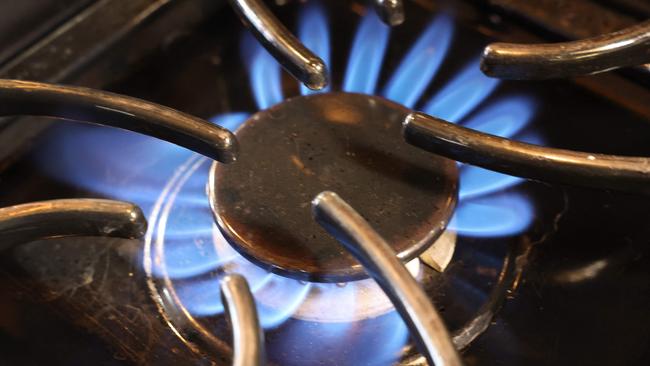
The Great Gas Stove Rebellion of 2023 probably won’t resonate with future generations of freedom-loving folk the way the Boston Tea Party does. It’s unlikely that the plucky protagonists in the struggle to save our ovens and ranges from the grasping hands of regulatory totalitarianism will one day be celebrated as the Samuel Adamses and Patrick Henrys of the kitchen appliance age.
“Give me smoothly regulated gas-flow cooking capability or give me death!” has a flaming blue ring to it. But it lacks somehow the peal of urgency, the alarm of existential threat our stone-kiln-firing predecessors could adduce to fuel their noble cause.
Still, the little victory secured last week over the forces of progressive technocratic authoritarianism is significant in its way — even if it may prove only provisional and someday in a bleak, electrified future, our Vikings and Kenmores are eventually prised from our cold, dead hands.
The small triumph chalked up for common sense and normality is so rare these days it’s worth celebrating in itself. It’s also a useful reminder that the inexorable march of government mandates, the endless effort by our rulers to enforce their “scientifically” unchallengeable dogma on what they see as a population of ignorant drudges, can be resisted.
I’ll NEVER give up my gas stove. If the maniacs in the White House come for my stove, they can pry it from my cold dead hands. COME AND TAKE IT!!
— Ronny Jackson (@RonnyJacksonTX) January 10, 2023
More than that, the way the episode played out last week has been an instructive exercise in how modern society advances, how the ascendant left is the locomotive force behind our culture and politics. We evolve today through the imposition from above of new rules and dogmas — as if that is a stable, natural process and any attempt to resist it is ignorant, reactionary extremism.
You can tell this from the way in which much of the media reported on the attempted gas-stove grab.
As conservatives — and, much of the apolitical public — began to raise their voices against Commissar Richard Trumka Jr.’s diktat declaring war on gas stoves, the media took up the familiar narrative.
“How Gas Stoves Became a Right-Wing Cause in the Culture Wars” explained Time Magazine.
An unelected official proposes some indefensible new regulation in the name of “science” that materially and adversely affects the lives of tens of millions of Americans — and it is somehow another front opened by the “right wing” in their “culture wars.”

God. Guns. Gas stoves.
— Rep. Jim Jordan (@Jim_Jordan) January 12, 2023
It happens all the time. You can frame a good deal of the political and cultural evolution of the country in the past few decades in this way: The left elites compel adherence to their latest ideological orthodoxy and anyone questioning it is waging culture war. It happened with same-sex marriage, the idea that sex is independent of biology, the proposition that all white people are racist, the assertion that the planet is burning. All started out as intellectual hobbyhorses of the left fringe and quickly wound up being examples of the “far right” trying to impose its will.
This fits the wider narrative of our ruling intellectual classes: that it is the conservative side of the political spectrum that has gone extreme, that all our contemporary political woes — hyperpartisanship, divisiveness, the extremism of our political discourse — can be traced to the Republican Party’s jumping off the right of the ideological diving board into the deep end of fanaticism.
Yet the 2022 Gallup Poll Social Series, an annual survey of thousands of Americans, found new confirmation that it is the Democratic Party, not the GOP, that has moved toward the extreme in the past few decades and in the process has driven much of the cultural agenda.
Last year Gallup found that the percentage of Democrats who identify themselves as politically liberal rose by 4 points, to 54%, a new high, with 36% declaring themselves moderate and only 10% conservative. In 1994, the proportion of Democrats identifying as liberal was 25%. In 2010 it was 40%.
Don’t tread on Florida, and don’t mess with gas stoves! pic.twitter.com/FNETzpuANe
— Ron DeSantis (@GovRonDeSantis) January 12, 2023
Over the same period the proportion of registered Republicans who identify as conservative has only edged up — from roughly 60% in the 1990s to 72% in 2022. Most others identify as moderate.
“Increased liberal identification among U.S. Democrats has occurred across all demographic categories,” writes Lydia Saad, director of social research at Gallup, commenting on the survey. “But that shift has been particularly pronounced among White Democrats.”
Since Democrats now seem heavily to favour the illiberal imposition of many of their notions, it might be time to retire the term “liberal” in describing them. But the sharp swing to the left is clear.
Some of these ideological changes do, it’s true, become quickly embedded in wider public support. Gay marriage is the obvious example. But most don’t. Resisting them, like resisting assaults on our kitchen appliances, isn’t extremism. It’s patriotism.
The Wall Street Journal







